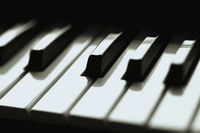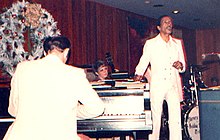Piano Sheets > Milt Jackson Sheet Music > Hello (ver. 1) Piano Sheet
Hello (ver. 1) by Milt Jackson - Piano Sheets and Free Sheet Music

About the Song
Other avaliable versions of this music sheet: Version 1 Version 2
Piano notes and music reading No language is easy to learn except for our mother tongue. Mother tongue is a language which we start learning as soon as we are conceived. But learning some other language can be difficult if you are really not into it. Piano Notes are written in a completely different language. Agreed that the characters in the piano notes are very artistic and beautiful but they are equally strange to beginners and newcomers. But here is one interesting fact. Learning music reading from a piano notes music sheet is not a very difficult task. Actually it is much easier than learning a foreign Asian language like Chinese. Memorization and repetition are the two main ingredients for success in mastering the language of piano notes. So realistically speaking, once you are done reading the basics, all you have to do is practice the language as much as you can. To say in a very classical tone, practice till each and every note starts running through your veins. (More...)
Download this sheet!
About the Artist

Random article
Piano notes and music reading No language is easy to learn except for our mother tongue. Mother tongue is a language which we start learning as soon as we are conceived. But learning some other language can be difficult if you are really not into it. Piano Notes are written in a completely different language. Agreed that the characters in the piano notes are very artistic and beautiful but they are equally strange to beginners and newcomers. But here is one interesting fact. Learning music reading from a piano notes music sheet is not a very difficult task. Actually it is much easier than learning a foreign Asian language like Chinese. Memorization and repetition are the two main ingredients for success in mastering the language of piano notes. So realistically speaking, once you are done reading the basics, all you have to do is practice the language as much as you can. To say in a very classical tone, practice till each and every note starts running through your veins. (More...)
